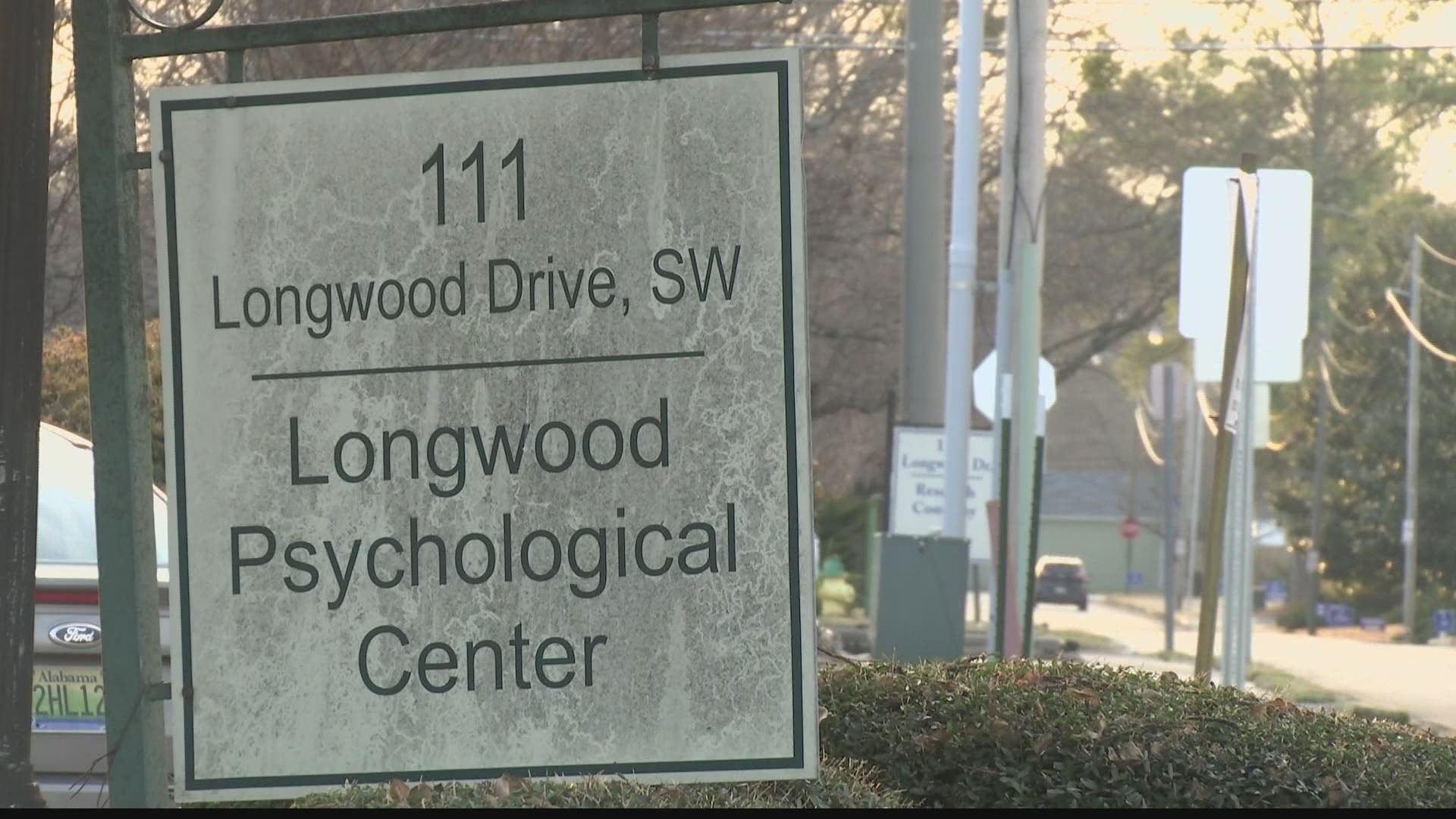HUNTSVILLE, Ala — We’ve heard a lot about ‘burnout’ during the pandemic.
Burnout is a state of exhaustion, basically caused by prolonged stress. As people whose job it is to help everyone else process their emotions, therapists can find themselves taking on a lot of that stress themselves-- especially during the pandemic.
Like any other health workers, therapists and counselors have been in high demand during the pandemic. We checked in with some professionals right here in the Valley who say they've all had moments where even they have felt overwhelmed. The need for mental health care is only growing.
We spoke with Dr. Sarah Mulder, a privately practicing Licensed Clinical Psychologist with Longwood Psychological Center. She tells our reporter, “We have a high level of need, combined with the fact that every therapist I know has a full caseload."
Other professionals are seeing the same thing.
We touched base with Psychotherapist, Monretta Vega, with Huntsville Psychotherapy & Counseling Services. Vega tells us the use of telehealth is positive because more people can seek care. But, this can put a lot of pressure on professionals to tend to as many clients as they can to try to meet the growing demand. Vega says, “They can go in their room, or the privacy of their garage, or their man cave-- for lack of a better word-- and have a therapy session. So, there’s been accessibility and it has increased the number we’re seeing as mental health professionals.”
James Desta is a Licensed Professional Counselor with Longwood Psychological Center. Desta tells us, “There’s a lot more emphasis on our profession right now. There’s a lot more attention given to it, which is on one hand amazing, because people are finally taking mental health seriously. It happens to be in one of the greatest psychosocial crises in our modern era. But, it is what it is. The thing is though-- there are only so many of us.”
Dr. Mulder says she's stretching herself thin. She adds, “I’m full, and in fact, squeezing in three to five extra clients a week."
It’s not just more clients. People are in higher levels of distress.
Dr. Sarah Mulder explains, “You know, I’m dealing with a lot of crisis calls and high acuity of depression and anxiety. Way more than I had been.”
According to GoodTherapy, Over half of mental health professionals report moderate or high burnout. These numbers are expected to rise during the pandemic.
Our reporter asked what these people, who care for so many, do to care for themselves.
James Desta shares, “I have been a Nintendo fan since I was a kid. I have a Nintendo Switch and when my daughter getting ready for a bath and just sit on the floor and play some Mario Cart or something like that. That’s my decompression time.”
Dr. Mulder tells our reporter she turns to, “...working out or exercising." She adds, "I am a cake baker... “
Monretta Vega tells us, “I enjoy to write. So, I say write, journal... poetry... whatever you enjoy. Whatever your preference may be.”
All these professionals say not to let the increase in demand discourage you from seeking help if you feel you need it.
If you’re looking for help, here are some resources:
LGBT+ Support Needs: Dr. Mulder is involved with Trans Family Support Services. She tells us some of her clients enjoy the organization's support groups and youth group meetings. Find more information on how to get involved on their Facebook Page.
Need help, information, or just someone to talk to? Here’s a list of resources.
The Trevor Project: Provides crisis intervention and suicide prevention services to LGBT+ youth.
24/7 phone help: 866-488-7386 Click here to text or chat with someone now.
National Suicide Prevention Hotline: 800-273-8255
Crisis Services North Alabama: If you need to find comfort, compassion and empathy, please call the HELPline 24 hours a day at 256-716-1000 or text 256-722-8219 from 4pm-11:30pm.
CARE Services, Inc.: CARE provides LGBTQ teen social and support groups for ages 14-19.
PFLAG Huntsville: PFLAG Huntsville‘s stated mission is to “serve families, friends, allies, and LGBTQ persons in the Hunstville area through education, support, and advocacy.” They host peer support meetings, socials, and other events.
It Gets Better Project: National organization to empower LGBTQ youth and their families. They also have a list of national and state-by-state resources.
GLSEN: The Gay Lesbian Straight Education Network works to train educators and staff about how they can create schools that are safe and free from bullying and harassment.

